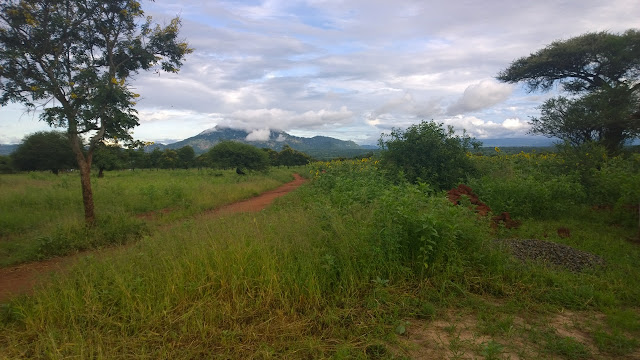None of Us is Where We Began
 |
| View from the University of Toronto - July 2011 |
Whether
you subscribe to the 'Out of Africa' theory of Human Evolution, the 'Out of
Eden' story of Genesis, some hybrid combination of the two, or something else
entirely, the simple fact is that none of us is where we began. At some point
in time our ancestors moved from one place to another. For some, that history
is more recent, for others it stretches back millennia.
For
sure, this is a simple observation – deceptively so. When given further
consideration it expands and starts to trigger questions about the construction
of identity and relationships between human beings, the world, and the places
that we call home within it. The questions are ones that received serious
attention at the conference I attended in Toronto last
month and are ones that I carry with me as I navigate daily life in Southeast
Asia.
I
identify myself as a migrant, one who is decidedly not where I began.
I
think about my family and my 'homeland' in Southeastern Wisconsin. As deeply
rooted as we may consider ourselves, we have not always been there. My mom's
side of the family lays some tangential claim to passage on the Mayflower and
one of the first pilgrimages from Europe to the Americas. The Harrits family
came even more recently, in the first half of the Twentieth Century. While the
identity I claim from them is primarily Danish, I know that if you push back
further we were really potato planters from the northern part of what is now
Germany. Beyond that, I don’t really know.
I
think about where I have landed, the state of Sabah, and the successive waves
of peoples who have come here and who have made this place their home. The
Chinese who first came here as laborers from Hong Kong and Guangdong in the
1800s, the Malays who came as traders from elsewhere in the archipelago in the
centuries before that, and the indigenous peoples who, although they’ve been
here since at least 3000bc, first came here from either what is present day
Taiwan or the ancient landmass known as Sundaland.
I
think about conflicts over territories and borders. There were the arbitrary
lines that Colonial Powers drew throughout Southeast Asia that sent related
people groups off on divergent histories, separating what would become Malaysia
from what would become Indonesia despite their cultural and ethnic
similarities. Now, off the coast of Sabah and far out in the South China Sea, one
can find new lines being drawn as the countries of the ASEAN region fight off
claims by China over contested islands and spits of land. In the quest for
resources and control of the channels for economic growth, the questions come again:
what belongs to whom and who belongs where?
I
think about the labels given to those who move and stay: resident, citizen,
foreigner, alien, migrant, undocumented, unwanted. I think of the workers I’ve met who risked their lives to travel to the tomato field of Florida to feed
America’s appetite for cheap eats while supporting families and loved one at
home through the meager remittances they send back. I think of the Nepalis I’ve worked with in Kuala Lumpur and the children we serve in Sabah, both groups trapped
in precarious places within and between countries. I imagine that all of their hearts
are filled with the same hopes and dreams and fears that my ancestors had as
they made their passages across the North Atlantic.
We
are all immigrants. None of us is where we began. Others will be in our place
when we pass on. If we
can acknowledge our shared migratory nature, perhaps we can more easily acknowledge
the commonalities those who are currently settled share with those who find
themselves on the move.
For
people of faith, such a perspective might allow us to learn more about the God
who formed us all as critters with a propensity to travel, the God who animates
us all with one same Spririt, the God who so loved us all that he himself took
on flesh – a divine migrant born in a bed of straw.


Comments